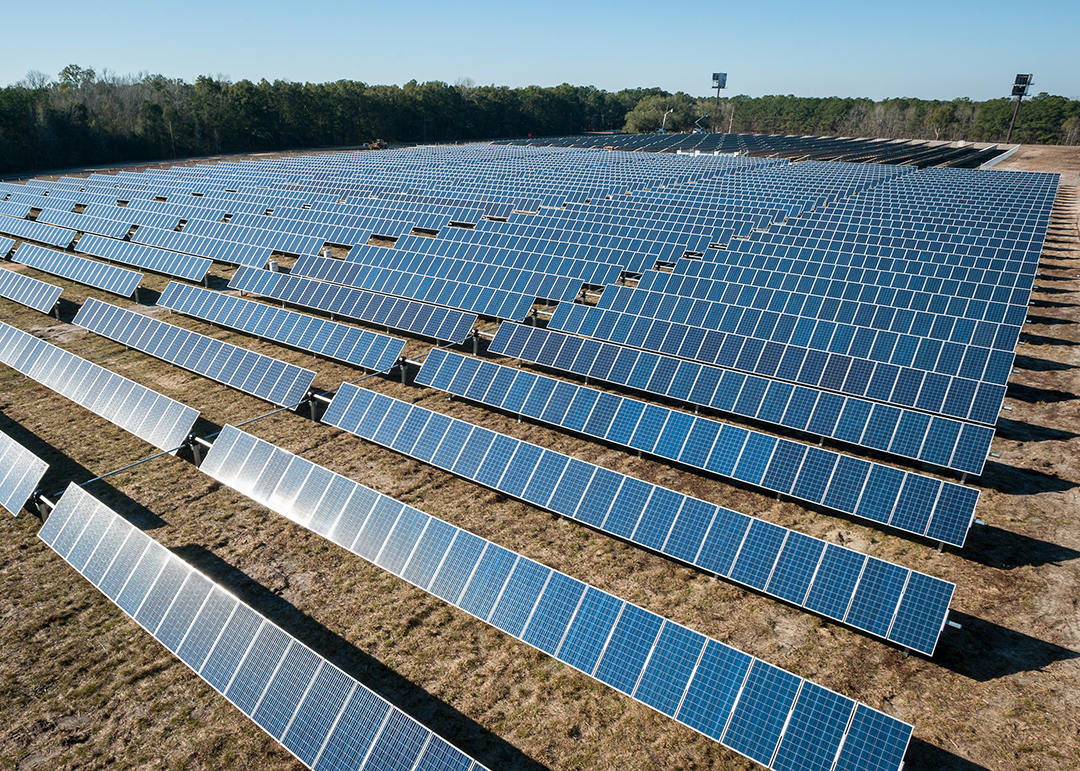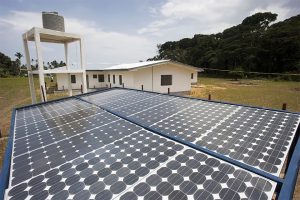11 January 2019: The report of the Global Commission on the Geopolitics of Energy Transformation analyzes how the rapid expansion of renewables will reshape relations between states and regions and between governments and citizens. It concludes that the global transition towards renewable energy will have far-reaching geopolitical implications comparable to those triggered by the rise of coal and other fossil fuels during the early industrial revolution.
The report titled, ‘A New World: The Geopolitics of the Energy Transformation,’ was released at the ninth session of the IRENA Assembly. It investigates the key drivers of global energy transition, impacts of the transition on countries, potential shifts in power dynamics, and how the global energy transition, together with other factors, could cause geopolitical instability.
“Energy transition will ultimately move the world in the right direction by addressing climate change, combating pollution, and promoting prosperity and sustainable development.”
The authors find that energy transition will create a world “very different from the one that was built on a foundation of fossil fuels.” The influence of states that have heavily invested in renewables, such as China, will grow, whereas that of states relying on fossil fuels exports will diminish, if they fail to adapt to the energy transition.
Overall, the Commission concludes that energy transition will strengthen energy independence and energy security of most countries leading to a long-term decline in energy-related conflicts. While some states my face a challenging adaptation period, a global energy transition will “ultimately move the world in the right direction by addressing climate change, combating pollution, and promoting prosperity and sustainable development.”
Characteristics of the Energy Transition
The analysis begins by explaining that the global energy transition is characterized by three primary aspects: increases in energy efficiency; growth of renewables; and electrification of end-use sectors currently relying on fossil fuels, such as transport and heating. Change in these three dimensions is driven by six enabling trends:
- Declining cost of renewables;
- The need to address climate change and air pollution;
- The adoption of renewable energy targets in most countries;
- Technological innovation;
- Corporate and investor action, including fossil fuel divestment; and
- Shifts in public opinion.
The following section explains how key differences between renewable energy sources and fossil fuels will transform geopolitics, including: their widespread availability in almost all countries; the fact that renewables are flow resources that do not exhaust themselves as they are used; the ability to deploy renewables at almost any scale; and the fact that most renewable sources have almost no marginal cost.
Impacts on Countries
How these characteristics and drivers impact a country will be determined to a large extent by its dependence on fossil fuel imports and ability to innovate. The publication shows how different countries and regions stand to benefit from, or be challenged by, the energy transition and why. The US, for example, is well positioned to benefit because of its near self-sufficiency in fossil fuel supplies and its strength in new technology development. China can capitalize on its cost competitiveness in renewable energy equipment manufacturing and its ability to attract large investments in renewable energy. South Asia and Small Island Developing States (SIDS) will benefit most from reduced costs of fossil fuel imports, while some countries of Sub-Saharan Africa may be able to leapfrog fossil fuel development entirely. Fossil fuel-exporting countries, such as Russia, the Middle East and North Africa, on the other hand, are expected to face challenges in adapting to reduced fossil fuel revenues.
The subsequent section discusses the vulnerability of fossil fuel exporting countries to a decline in global demand and a resulting decline in geopolitical influence, by comparing their relative dependence on fossil fuel imports and their degree of resilience to respond to a decline on these revenues. This analysis results in four groups:
- Highly exposed, low resilience countries, including Libya, Angola, Republic of Congo, Timor-Leste and South Sudan;
- Highly exposed, highly resilient countries, including many Gulf states, such as Saudi Arabia, Qatar, Kuwait, the United Arab Emirates (UAE), and Brunei Darussalam;
- Moderately exposed, moderately resilient countries that can manage the transition if they implement additional policies to diversify their economies, including Russia, Iran, Algeria and Azerbaijan; and
- Relatively low exposure countries where fossil fuel exports are less than 10% of GDP, including Malaysia, Bahrain, Colombia and Norway.
The Commission also discusses how energy transition can create opportunities for new energy leaders. Chile’s solar resources or Brazil’s biofuels capacity for example, could position these countries as exporters of renewable energy. Bolivia, Mongolia and the Democratic Republic of the Congo control a high share of the minerals required to deploy renewable technologies, and China leads in innovation and manufacturing by a wide margin. Nonetheless, the authors do not expect these countries to dominate global energy supply in the way fossil fuel exporters do today because of the widespread availability and diversity of renewable energy resources.
How the Energy Transition will Shape International Relations
The report then outlines the geopolitical implications that can be expected:
- International alliances have already begun shifting from fossil fuel-based collaboration, such as the Organization of Petroleum Exporting Countries (OPEC), to alliances focused on renewable energy, such as the International Solar Alliance, the Global Geothermal Alliance and Mission Innovation.
- Similarly, the importance of maritime trade routes and strategic “chokepoints” in international trade, such as the Straits of Hormuz and Malacca, can be expected to diminish as energy markets become more regional.
- On the other hand, grid connectivity between neighboring states and within regions becomes a new strategic asset to ensure energy security and realize competitive advantages in renewable energy production.
- The importance of “energy statecraft,” the use of the geostrategic importance of oil and gas as a foreign policy tool, is expected to diminish as energy production becomes more decentralized and diversified, thereby reducing the dependence of energy importing states. Instead, the Commission expects the emergence of complex networks of regional interdependence often driven by reciprocal energy flows.
- In a similar vein, the authors also argue that the role of oil and gas as a driver of conflict is likely to diminish in the long run, as renewables alleviate pressure on energy resources. They note however, that energy is only one factor driving conflict that often aggravates existing political instability.
- On the domestic level, the decentralization and diversification of energy supply will reduce the role of national governments as provider and distributor of energy. The authors find that citizens, cities and corporations will benefit from a shift of control over energy and energy assets from governments to a new type of businesses and “prosumers” enabled by the local production of solar and other forms of renewable energy.
The study also discusses some of the risks of energy transition to political stability, including stranded assets in fossil fuel production, cybersecurity for integrated grid management and the need to develop policies for a just transition for employees in sectors that are bound suffer, such as coal mining.
In the final section, the authors conclude that the global energy transition will lead to fundamental shifts in the geopolitics of energy, calling on decision makers to prepare for the changes ahead to ensure a smooth transition.
The Global Commission on the Geopolitics on the Geopolitics of Energy Transformation was convened by IRENA’s former Director General, Adnan Z. Amin in January 2018. Chaired by former President Ólafur Ragnar Grímsson of Iceland, the Commission comprises a diverse group of distinguished leaders from the worlds of politics, energy, economics, trade, environment and development. [Publication: A New World: The Geopolitics of the Energy Transformation] [IRENA Press Release][SDG Knowledge Hub on the first meeting of the Commission]


